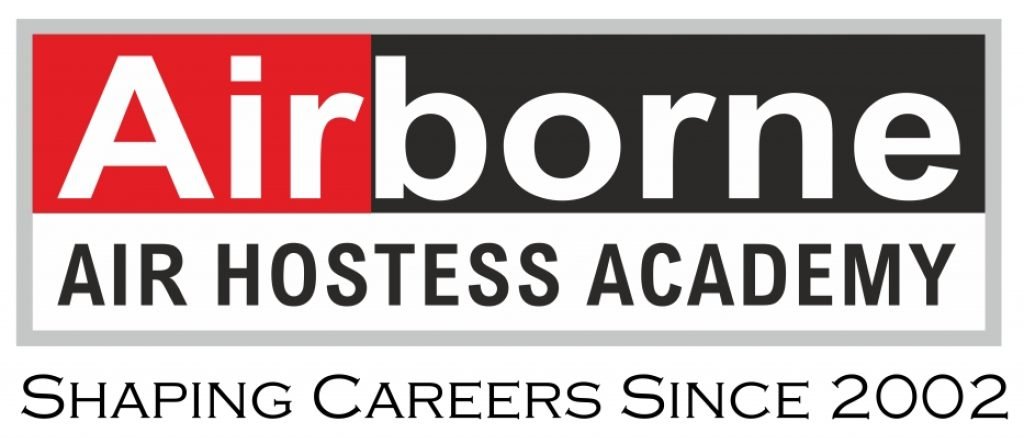Sharpen Your Skills
Retail Management
(12 Months, Regular Diploma, International Standard)
100% Job Guarantee
We proudly claim to have driven winners with our guaranteed job placement. We have placed thousands of students in the last 21 years. Our internship training model also helps our students to attain better placement results in future.
Authorized Training Centers
We are accredited partners of LAPT, NSDC and Skill India. Our institute is Skill India and NSDC authorized training centre. Our professionally designed courses help you to get any job you want.
ONLINE COUNSELING Session
Our motto is to provide the best of education to anybody, anywhere using technology that drives the future. So, no matter where you are, you can avail our courses at a click of a button.
Course Overview
The Diploma in Retail Management is a comprehensive program designed to equip students with the knowledge, skills, and practical experience necessary to excel in the dynamic retail industry. This course covers various aspects of retail operations, merchandising, sales management, customer service, and business administration.
Course Structure:
Introduction to Retail Management: This module provides an overview of the retail industry, including its evolution, key trends, and the role of retail in the economy. Students learn about different types of retail formats, retailing concepts, and the importance of customer-centric strategies in retail management.
Retail Operations Management: Students gain insights into retail operations, including store layout and design, inventory management, supply chain logistics, and store security. They learn how to optimize store operations for efficiency, profitability, and customer satisfaction.
Merchandising and Product Management: This module focuses on merchandising principles, product assortment planning, pricing strategies, and visual merchandising techniques. Students learn how to analyze consumer behavior, forecast demand, and create compelling product displays to drive sales and enhance the shopping experience.
Sales and Customer Relationship Management: Students develop skills in sales techniques, customer relationship management (CRM), and sales performance analysis. They learn how to identify customer needs, provide personalized service, handle objections, and build long-term relationships with customers to drive repeat business and loyalty.
Retail Marketing and Promotion: This module covers retail marketing strategies, promotional tactics, and digital marketing channels. Students learn how to develop marketing campaigns, leverage social media platforms, and use data analytics to target and engage customers effectively.
Retail Financial Management: Students gain an understanding of retail financial management principles, including budgeting, financial analysis, profit optimization, and cost control. They learn how to manage retail finances, track performance metrics, and make strategic decisions to maximize profitability.
Retail Entrepreneurship and Business Development: This module explores entrepreneurship opportunities in the retail industry, including starting and managing retail businesses, franchise operations, and e-commerce ventures. Students learn how to develop business plans, identify market opportunities, and navigate regulatory requirements.
Key Features:
Practical Training: The program includes hands-on training, industry projects, and internships to provide students with real-world experience in retail operations and management.
Industry-Relevant Curriculum: The curriculum is developed in collaboration with industry experts and aligns with current retail industry standards, best practices, and emerging trends.
Soft Skills Development: In addition to technical knowledge, the program emphasizes the development of soft skills such as communication, teamwork, leadership, and problem-solving, which are essential for success in the retail industry.
Career Opportunities: Graduates of the program are equipped to pursue various entry-level and supervisory roles in retail management, including store manager, retail supervisor, merchandising coordinator, sales associate, and customer service representative.
Duration: The Diploma in Retail Management is a 12 months regular course.
Entry Requirements: The program is open to students who have completed high school or equivalent qualifications.
Conclusion:
The Diploma in Retail Management offers students a comprehensive education and practical training to prepare them for exciting careers in the fast-paced and dynamic retail industry. With a focus on industry relevance, hands-on experience, and soft skills development, graduates are well-positioned to succeed in various roles within the retail sector.
Job Opportunities
Cabin Crew
Cabin Crew
Know More..Airport Operations
Airport Operations
Know More..Airport Lounge
Airport Lounge
Know More..Airport Retail
Airport Retail
Know More..Privileged Trains
Privileged Trains
Know More..Ground Services at Airport
Ground Services at Airport
Know More..Airport Check-in Staff
Airport Check-in Staff
Know More..Visa Officer
Visa Officer
Know More..Airport Security
Airport Security
Know More..Cargo / Freight
Cargo / Freight
Know More..Backend Reservation Staff with Airlines
Backend Reservation Staff with Airlines
Know More..Travel Expert
Travel Expert
Know More..Hotel Jobs
Hotel Jobs
Know More..Cruise Ships
Cruise Ships
Know More..Customer Services
Customer Services
Know More..Frequently Asked Questions (FAQs)
Many foreign retail industries are expanding in Indian market and you may get the opportunity to work with them. Graduates can start careers in client communication, merchandise shipment, sales, supervisory, management & administrative services.
A diploma in retail management opens up a wide range of job opportunities in various sectors of the retail industry. Here are some common job roles that graduates can pursue:
- Store Manager: Store managers are responsible for overseeing the day-to-day operations of a retail store, including managing staff, ensuring customer satisfaction, controlling inventory, and meeting sales targets.
- Assistant Store Manager: Assistant store managers support the store manager in managing store operations, supervising staff, and implementing sales strategies. They often step in to handle issues in the absence of the store manager.
- Retail Sales Associate: Sales associates are front-line staff who assist customers, process transactions, restock shelves, and maintain the overall appearance of the store. They play a crucial role in providing excellent customer service and driving sales.
- Visual Merchandiser: Visual merchandisers are responsible for creating visually appealing displays to showcase products and attract customers. They use their creativity and knowledge of consumer behavior to design layouts that enhance the shopping experience and drive sales.
- Retail Buyer: Retail buyers are responsible for selecting and purchasing merchandise for resale in retail stores. They analyze market trends, negotiate with suppliers, and make purchasing decisions to ensure the right mix of products that align with consumer preferences and maximize profitability.
- Inventory Manager: Inventory managers are tasked with managing inventory levels, tracking stock movements, and ensuring accurate stock counts. They develop inventory management strategies to minimize stockouts, reduce excess inventory, and optimize supply chain efficiency.
- Marketing Coordinator: Marketing coordinators develop and execute marketing campaigns and promotional activities to drive traffic to retail stores and increase sales. They collaborate with various teams to create marketing materials, manage social media accounts, and analyze campaign performance.
- Customer Service Manager: Customer service managers oversee the customer service team and ensure that customers receive prompt and satisfactory assistance. They handle escalated customer complaints, implement service improvement initiatives, and train staff on effective customer service techniques.
- E-commerce Manager: E-commerce managers are responsible for managing online sales channels, such as websites and mobile apps. They oversee website design and functionality, optimize product listings for search engines, and analyze online sales data to identify opportunities for growth.
- Retail Operations Manager: Retail operations managers oversee the overall operations of multiple retail locations or departments within a retail chain. They develop and implement operational policies and procedures, monitor performance metrics, and ensure consistency across all stores.
These are just a few examples of the job opportunities available in retail management. With the right skills and experience, graduates can explore various career paths and advance into leadership roles within the retail industry
A career in retail management is ideal for individuals who possess certain qualities and interests. Here are some characteristics of people who might thrive in this field:
- Customer-Service Oriented: Those who genuinely enjoy interacting with and assisting customers will find satisfaction in retail management roles, as providing excellent customer service is a key aspect of the job.
- Strong Communication Skills: Effective communication is essential for conveying information to staff, collaborating with team members, and interacting with customers and suppliers.
- Leadership Abilities: Retail managers need to lead and motivate their teams to achieve sales targets, maintain store standards, and provide exceptional customer experiences.
- Problem-Solving Skills: Retail environments can be dynamic and unpredictable, requiring quick thinking and problem-solving abilities to address issues as they arise.
- Analytical Thinking: Analyzing sales data, monitoring inventory levels, and identifying trends are essential tasks in retail management, requiring analytical skills and attention to detail.
- Adaptability: The retail industry is constantly evolving, with new technologies, trends, and consumer preferences emerging regularly. Those who are adaptable and open to change can thrive in this environment.
- Business Acumen: Understanding financial metrics, managing budgets, and making data-driven decisions are essential for success in retail management roles.
- Creativity: Visual merchandisers and marketing coordinators, in particular, benefit from creative thinking and the ability to design appealing displays and engaging marketing campaigns.
- Passion for Retail: Individuals who are genuinely interested in the retail industry, including its products, services, and consumer behavior, are more likely to excel in retail management roles.
- Team Player: Collaboration and teamwork are essential in retail environments, where employees must work together to achieve common goals and deliver excellent customer service.
Anyone passing 10+2 and in the age range between 17-27 is eligible to apply for Airborne’s Retail Management one year diploma course.
In India, the average annual salary of a Retail Marketer can vary based on factors like location, level of experience, the reputation of the employer, and specific job responsibilities. Generally, the salary range for a Retail Marketer in India is between ₹300,000 to ₹800,000 per year.
Joining Airborne for Retail Management offers several benefits:
- Industry-Relevant Curriculum: Airborne’s Retail Management program likely offers a curriculum tailored to the needs of the retail industry, covering topics such as retail operations, merchandising, marketing, and customer service.
- Experienced Faculty: You can benefit from learning under experienced faculty members who have expertise in retail management and can provide valuable insights and guidance.
- Practical Training: Airborne will provide opportunities for hands-on training, internships, or industry projects, allowing you to gain practical experience and apply theoretical knowledge in real-world retail settings
- Industry Connections: Airborne have collaborations with retail companies, providing networking opportunities, job placements, or guest lectures from industry professionals.
- Career Support Services: Airborne will offer career counseling, resume assistance, interview preparation, and job placement services to help you kickstart your career in retail management.
- Flexible Learning Options: Depending on Airborne’s offerings, you may have access to flexible learning options such as online courses, part-time classes, or evening sessions, allowing you to balance your studies with other commitments.
- Professional Development: Airborne’s Retail Management program can help you develop essential skills and competencies required for a successful career in the retail industry, enhancing your employability and advancement opportunities.
- Alumni Network: Upon completing the program, you become part of Airborne’s alumni network, which can provide ongoing support, networking opportunities, and access to job openings in the retail sector.
Overall, joining Airborne for Retail Management can provide you with the necessary knowledge, skills, and support to excel in the dynamic and competitive field of retail management.
Retail management requires a diverse set of skills to effectively oversee store operations, drive sales, and deliver exceptional customer service. Here are some key skills needed for success in retail management:
- Leadership: Ability to lead and motivate a team, delegate tasks, provide guidance, and foster a positive work environment.
- Communication: Excellent verbal and written communication skills to interact with customers, employees, suppliers, and other stakeholders effectively.
- Customer Service: Strong focus on providing outstanding customer service, addressing customer needs and concerns, and ensuring a positive shopping experience.
- Salesmanship: Ability to drive sales, upsell products, and meet sales targets through effective persuasion and selling techniques.
- Problem-Solving: Capacity to identify issues, analyze root causes, and implement solutions to resolve challenges that arise in store operations or customer interactions.
- Organizational Skills: Strong organizational abilities to manage inventory, merchandise displays, schedules, and other aspects of store operations efficiently.
- Financial Acumen: Understanding of basic financial concepts such as budgeting, forecasting, profit margins, and sales metrics to manage store finances effectively.
- Time Management: Ability to prioritize tasks, manage time efficiently, and meet deadlines in a fast-paced retail environment.
- Adaptability: Flexibility to adapt to changing circumstances, customer preferences, market trends, and new technologies in the retail industry.
- Analytical Skills: Capacity to analyze sales data, inventory reports, and other metrics to make informed decisions and identify areas for improvement.
- Teamwork: Collaboration with colleagues, vendors, and other stakeholders to achieve common goals and deliver high-quality service.
- Attention to Detail: Diligence in maintaining store appearance, ensuring accurate transactions, and adhering to company policies and procedures.
- Conflict Resolution: Ability to handle conflicts and disagreements professionally, mediate disputes, and maintain positive relationships among team members and customers.
- Tech Savvy: Familiarity with point-of-sale systems, inventory management software, and other retail technology tools to streamline operations and enhance efficiency.
- Creativity: Innovative thinking to develop attractive merchandise displays, marketing promotions, and customer engagement strategies that drive foot traffic and sales.
Developing and honing these skills can help individuals excel in retail management roles and advance their careers in the dynamic retail industry.
Reach Out to Us!
Some Feedbacks
ARUSHI BISHT

DIVYA SHARMA

MANORANJAN PATHAK

“Airborne not only provided theoretical and practical knowledge but also groomed my overall Personality. It was amazing journey of learning withRead more “MANORANJAN PATHAK”
ALTAF SHAIKH

Grow your knowledge and stay ahead of your competitors
Our Popular Courses
Contact Me
How can we help?
If you have any questions regarding my courses, please fill out the form below and I’ll get back to you as soon as possible.




